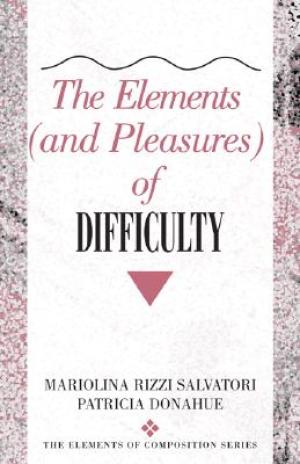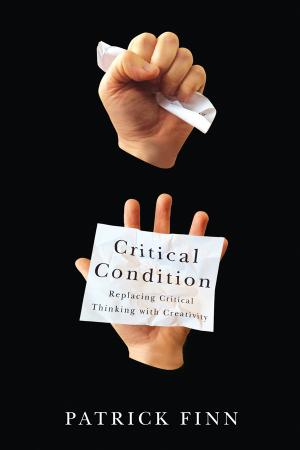Resources
When teaching diversity courses that discuss sensitive issues, such as racial, gender, sexuality, religious, and ethnic discrimination, it is possible to encounter student resistance, which can subsequently prevent students from comprehending the content. While teaching an introductory course on African American history in a Black Studies Department at a predominantly white institution of higher education in Middle America, I experienced such resistance. This article discusses how I initially taught the course, evaluated and then restructured my active learning approach to include reflective learning and Black Studies techniques to address that resistance.

Emphasizing both reading and writing, The Elements of Difficulty helps readers to confront the challenges of interpreting difficult texts and to see those challenges as paths to knowledge, rather than impediments. This short, economical paperback enables readers to acknowledge, name, and assess the nature of their difficulties in reading and interpreting complex texts, with the ultimate goal of transforming confusion into understanding. (From the Publisher)
Annotating a text can be a powerful strategy to comprehend difficult material and encourage active reading. High school teacher Carol Porter-O’Donnell provides several activities and tools to help students learn to purposefully mark up what they read.
A simple and short chart that provides  a few simple strategies for making lectures more interactive. 
Georgia State University associate professor of religious studies, Molly Bassett, writes about a dual-level course she's teaching for a third time this fall titled "Religious Dimensions in Human Experience.” Part 2, is a reflection by one of her former graduate students, Sarah Levine, who took the course the first time Bassett taught it in the fall of 2010.
An overview of research in cognitive psychology, linguistics, and teaching science. 1) note taking strategies used by students; 2) the different factors involved in comprehension through note taking; 3) “writing to learn”; 4) the learning contexts that allow effective note taking.
Reviews research on the impact of notetaking and how the review of notes affects student learning. The paper also explores the role that instructors can play, suggesting several specific strategies to support students. 
Short, accessible, review of several recent studies showing that lectures are a pedagogical technique that “favor some people while discriminating against others, including women, minorities and low-income and first-generation college students.” All the more reason for adopting active learning strategies that have proved to be more effective for ALL learners.

Should we stop teaching critical thinking? Meant as a prompt to further discussion, Critical Condition questions the assumption that every student should be turned into a “critical thinker.” The book starts with the pre-Socratics and the impact that Socrates’ death had on his student Plato and traces the increasingly violent use of critical “attack” on a perceived opponent. From the Roman militarization of debate to the medieval Church’s use of defence as a means of forcing confession and submission, the early phases of critical thinking were bound up in a type of attack that Finn suggests does not best serve intellectual inquiry. Recent developments have seen critical thinking become an ideology rather than a critical practice, with levels of debate devolving to the point where most debate becomes ad hominem. Far from arguing that we abandon critical inquiry, the author suggests that we emphasize a more open, loving system of engagement that is not only less inherently violent but also more robust when dealing with vastly more complex networks of information. This book challenges long-held beliefs about the benefits of critical thinking, which is shown to be far too linear to deal with the twenty-first century world. Critical Condition is a call to action unlike any other. (From the Publisher)
Wabash Center Staff Contact
Sarah Farmer, Ph.D
Associate Director
Wabash Center
farmers@wabash.edu